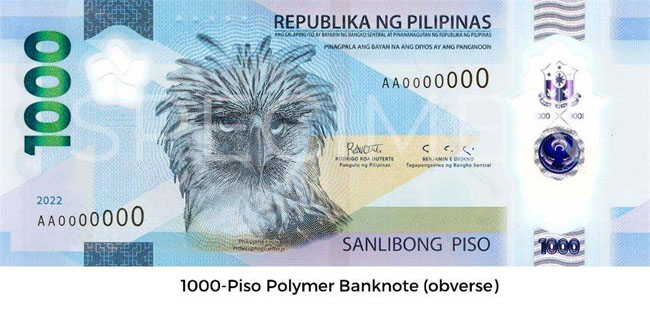Senator Pimentel: “Our bills should be designed in such a way that they can withstand a minimum amount of abuse”
SENATOR KOKO PIMENTEL — The opposition senator has asked the Bangko Sentral ng Pilipinas (BSP) to immediately suspend the production of “impractical” 1,000-piso polymer banknotes.

Senator Aquilino “Koko” Pimentel III said that the central bank’s decision to use polymer instead of the indigenous abaca in its new 1,000-piso banknotes is not only detrimental to local abaca producers’ livelihood but is also very impractical to many Filipinos who are used to storing their banknotes in their purses, pockets, or their tri-fold wallets.
In a statement on Tuesday night, the senator said that the issuance of those polymer banknotes to replace the old banknotes is “absolutely absurd”.
“Our bills should be designed in such a way that they can withstand a minimum amount of abuse like crumpling and folding. Parang gusto pa yata nila ilagay sa frame yung bills para kunwari matibay,” he said. “The BSP should suspend the production of these banknotes ASAP.”

While polymers are supposed to be sturdier than abaca, the senator said that it doesn’t have the needed flexibility to allow people to store the bills in their purses, pockets, money clips, or even small wallets. He added that polymers are very sensitive to chemicals.
READ ALSO: BSP Releases Statement Over Unaccepted Folded 1000-Piso Polymer Banknote Issue
The senator also said that he’s concerned about the possible negative impact of replacing abaca as a material for producing 1,000-piso banknotes, especially to the Philippines’ income from the exports of abaca fiber and manufactures, amounting to USD 97.1 million per year.
Citing the Department of Agriculture (DA), the senator said that the country dominated the global abaca trade as the country supplies about 87.5% of the world’s abaca fiber requirements, while Costa Rica and Ecuador the remaining 12.5% as of 2016.
Inquirer reported that abaca was planted on 180,302 hectares in 2016, with production reaching 72,000 metric tons.
Thank you for visiting Newspapers.ph. You may express your reactions or thoughts in the comments section. Also, you may follow us on Facebook as well.
